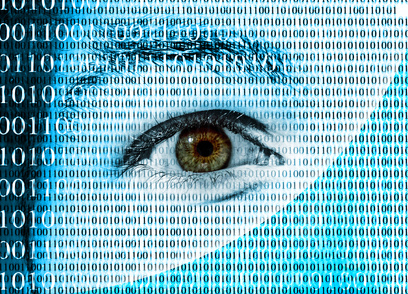Big brother sleeps easy

The revelation that Montreal police secretly monitored several journalists' smartphones for months, ostensibly in hopes of discovering the source of internal information leaks, has brought home for many people the troubling reality of government snooping. The fact that thousands of students recently lined up to watch whistleblower Edward Snowden at a video conference at McGill University is another sign of the public’s growing concern when it comes to respect for the right to privacy.
Indeed, it is not just journalists who are targeted by electronic surveillance. Revelations about the National Security Agency (NSA) in the United States also touch Canadians, since in the age of the Internet and social networks, telecommunications know no borders. It is reasonable to imagine that practically all of our communications could be intercepted, filtered and recorded by governments. This is now the world in which we live.
Thanks to Snowden’s revelations, Canadians know our federal government is actively helping the United States with surveillance programs of its own. For example, it was revealed in April that the RCMP had decrypted approximately one million private messages from BlackBerry smartphones. In addition, we know that the number of communications intercepted in Canada grew by a factor of 26 in 2015, without the authorities revealing any reasons.
This opacity is at the heart of the problem: “Big Brother” is completely lacking in transparency. A Federal Court ruling revealed recently that the Canadian Security Intelligence Service (CSIS) had acted illegally by conserving personal data for 10 years.
It is alarming to discover just how unclear the limits imposed on surveillance agencies and police forces are. It is probably this lack of clarity that allowed Montreal’s police force and the provincial Sûreté du Québec to put so many journalists under watch for such specious reasons.
Government agencies also take advantage of this grey zone to share databases among themselves and with foreign governments. For example, Ottawa imposes much stricter rules on the private sector than it imposes on itself regarding the collection, use, communication, and conserving of personal information, as recognized by the Office of the Privacy Commissioner and other observers.
This is a comparison worth making. While there is a widespread misconception that the giants of the Internet are less respectful of citizens’ privacy than governments, the reality is quite different. Although private sector companies have permanent access to some of our personal data, the threat of abuse almost always comes from governments, which are a much greater danger to our privacy.
This is due to important safeguards on private sector operators. There is, for example, the simple fact that they operate on the principle of consent. Consumers can easily choose their own privacy settings on social networks, refuse to use a credit card online, or deactivate location tracking features on their smartphones. Deactivating government surveillance, on the other hand, is impossible.
Companies are also in competition with one another and respond to user complaints, in order to hold onto customers and avoid being publicly denounced. When it comes to governments, however, Snowden's startling revelations do not seem to have really slowed the growth of surveillance, as shown by recent revelation of the NSA’s screening of Yahoo emails.
The prevention of terrorism and criminality are obviously legitimate objectives. However, the government’s surveillance powers must be properly regulated, limited to these objectives, and not trivialized. Unfortunately, by all accounts, this is not what is happening. To respect our privacy, governments should impose on themselves the same limits they have put in place for the private sector.
Mathieu Bédard est économiste à l'Institut économique de Montréal et l'auteur de « Qui menace le plus la vie privée, les entreprises ou les gouvernements? » Il signe ce texte à titre personnel.

